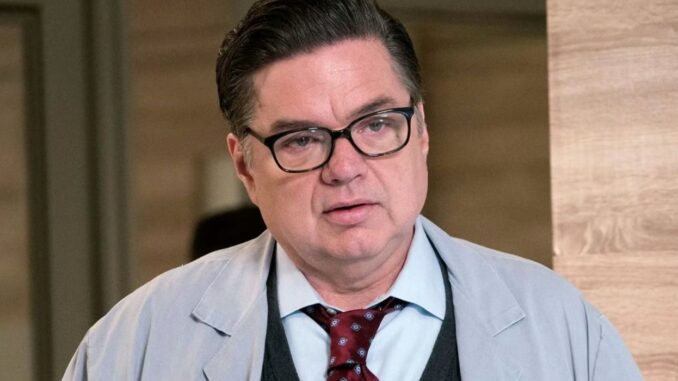
The Enduring Pulse of Gaffney: “Chicago Med” Rings in 200 Episodes
In the sprawling, often chaotic landscape of network television, where shows flicker and fade with the changing seasons, a series reaching its 200th episode is more than just a numerical milestone; it’s a testament. It speaks to a sustained rhythm, a loyal audience, and a compelling narrative that refuses to flatline. For “Chicago Med,” the medical drama that anchors Dick Wolf’s expansive “One Chicago” universe, hitting the 200-episode mark isn’t just a celebration of longevity; it’s an affirmation of its potent blend of high-stakes medicine, deeply human drama, and the relentless, compassionate heart that beats within Gaffney Chicago Medical Center.
From the insistent wail of an ambulance siren to the sterile, fluorescent glow of an operating room, “Chicago Med” plunges viewers headfirst into a world where every second counts and every decision carries life-or-death weight. What began in 2015 as a spin-off quickly carved out its own formidable identity, a space where the triumphs and tragedies of emergency medicine are explored with a potent mix of dramatic license and surprising realism. The initial episodes set the stage, introducing a diverse ensemble of doctors and nurses, each with their own complex backstories, ambitions, and moral compasses. Dr. Will Halstead’s perpetually troubled conscience, Dr. Natalie Manning’s compassionate but often impulsive heart, Dr. Ethan Choi’s rigid discipline contrasted with his empathy, and Dr. Daniel Charles’s profound insights into the human psyche – these characters became familiar faces, their professional struggles and personal travails weaving an intricate tapestry that has kept millions invested for nearly a decade.
Two hundred episodes have allowed for character arcs to unfold with a depth rarely afforded in the age of limited series. We’ve witnessed growth, backslides, love found and lost, ethical lines blurred and redrawn. The relationships forged within the crucible of the ER and OR – the friendships, rivalries, and romances – are the true heartbeat of the show. It’s not just about saving lives; it’s about living those lives, about how the relentless pressure of their profession shapes who these people are, and how they lean on each other to bear the unbearable. Each episode, a new patient brings a new dilemma, not just medical but often moral, social, or deeply personal, forcing the characters – and the audience – to confront difficult questions about healthcare, justice, and the very nature of humanity.
Beyond the personal dramas, “Chicago Med” has consistently proven its ability to mirror the societal landscape, tackling timely and often controversial issues with sensitivity and nuance. From the opioid crisis and mental health emergencies to the complexities of insurance coverage, medical ethics, and systemic inequities, the show has used its medical cases as a microcosm for broader societal challenges. A desperate organ transplant, a rare pediatric illness, a thorny ethical dilemma over patient autonomy – these are not merely plot devices but powerful illustrations of the human condition under extreme duress. The 200th episode, therefore, isn’t just a reflection of consistent production; it’s a testament to its enduring relevance, its capacity to provoke thought and foster empathy in equal measure.
The success of “Chicago Med” is also a testament to the colossal effort behind the scenes. The commitment of its ensemble cast, the meticulous work of an unseen army of writers, directors, and crew who conjure the controlled chaos of a major urban hospital week after week, all under the watchful eye of executive producer Dick Wolf’s tried-and-true formula. In a world saturated with content, maintaining such a high standard of storytelling and production for so long is a remarkable feat, solidifying its place not just within the “One Chicago” universe, but as a staple of contemporary medical drama.
Ringing in 200 episodes, “Chicago Med” stands as a vibrant example of television’s power to connect, to entertain, and to illuminate. It reminds us that even in the most sterile and high-pressure environments, the human spirit, with all its flaws and resilience, remains the most compelling story of all. As the doctors and nurses of Gaffney Chicago Medical Center continue their unwavering fight for their patients, the pulse of the show continues to beat strong, promising many more life-saving moments and heart-wrenching dramas to come.
